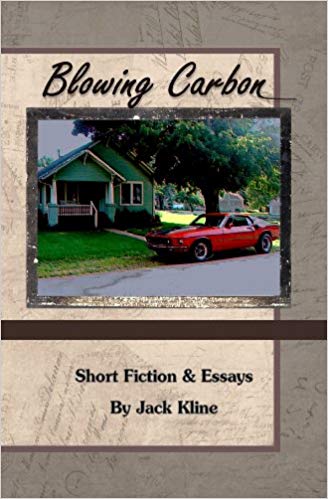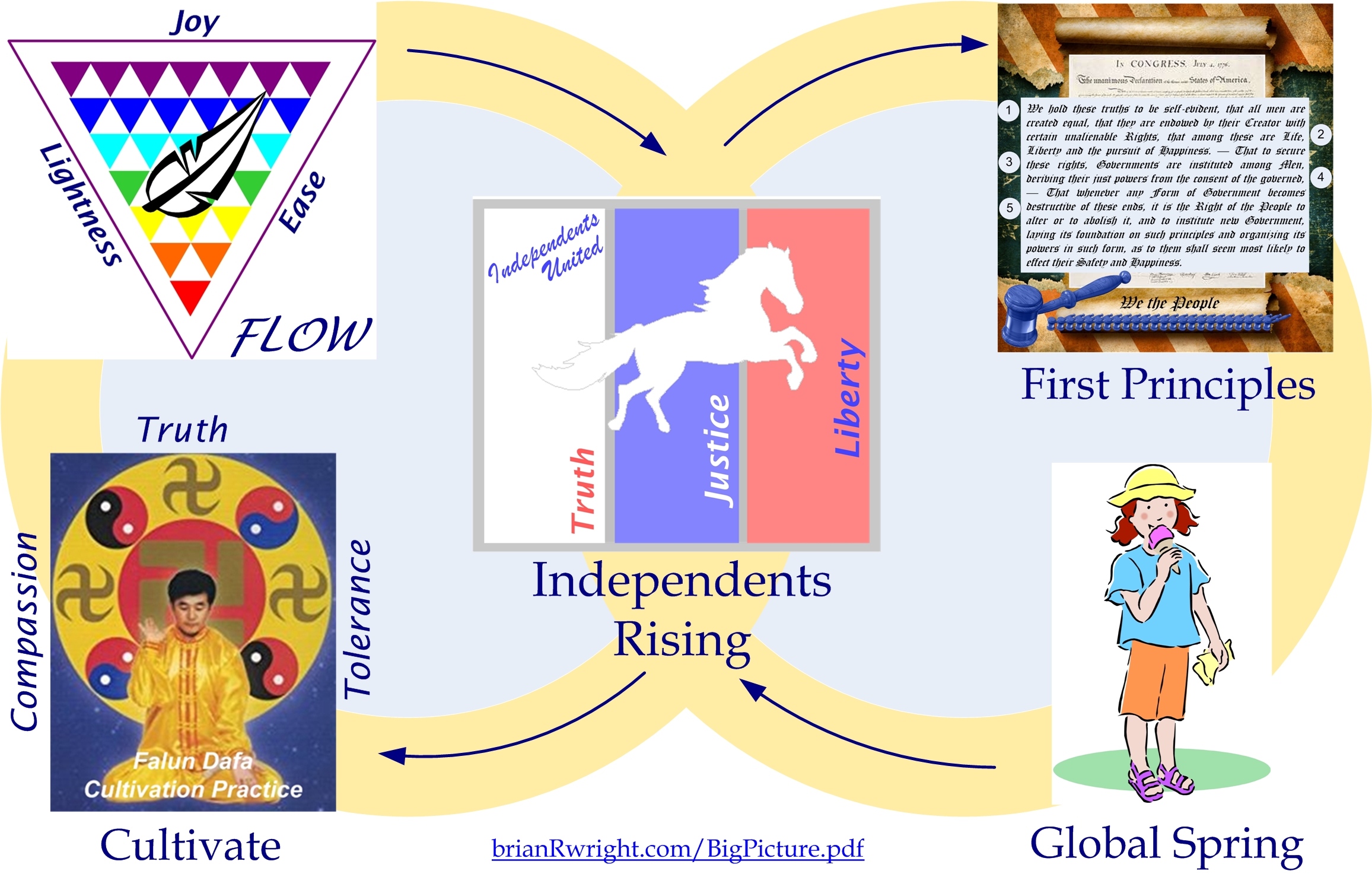Or should I say new ‘old’ leaf
By Brian R. Wright
Many would say that we-the-human-race on the man-on-the-street level—especially with the escalating pervasiveness of television through the end of the 20th century and now with the Internet coming of age in the early decades of the 21st—have caved in to the Neil Postman Amusing Ourselves to Death (1985) scenario. [Sorry, I have to forgive the analysis here, because frankly the number of readers who a) ‘get it’ or b) care, are vanishingly small. Which is perhaps THE major reason for my turning over a new leaf… to be discussed shortly.]
 A shortcut way to state the above is that most people have become comfortable with the perceptual-emotional or ‘see, hear, feel’ means of consciousness… with a corresponding loss of interest in the conceptual mode of same—reasoning things out thru reading, writing, and exercising independent logical judgment. Give you an example, turn on the mainstream nightly news, see the calming anchor, view the footage accompanying the anchor’s even assuring cadence announcing what meaning and solace you’re to take from the audio-visuals (or at least from the anchor’s voice-overs): “This is true and what all good people of society believe. Don’t worry, be happy, go to work as usual.” [Then the ads for the broadcast interweave to give you the context and range of acceptable material choices. This is what Postman called the Age of Television.] And it may be our species’ undoing…
A shortcut way to state the above is that most people have become comfortable with the perceptual-emotional or ‘see, hear, feel’ means of consciousness… with a corresponding loss of interest in the conceptual mode of same—reasoning things out thru reading, writing, and exercising independent logical judgment. Give you an example, turn on the mainstream nightly news, see the calming anchor, view the footage accompanying the anchor’s even assuring cadence announcing what meaning and solace you’re to take from the audio-visuals (or at least from the anchor’s voice-overs): “This is true and what all good people of society believe. Don’t worry, be happy, go to work as usual.” [Then the ads for the broadcast interweave to give you the context and range of acceptable material choices. This is what Postman called the Age of Television.] And it may be our species’ undoing…
[Note also that ALL the major mainstream networks convey the exact same root news.]
Please read the following short essay from a collection of short stories by Jack Kline, Blowing Carbon (2010).[1]
“Post-Literacy”
©Jack Kline
Reprinted here with permission of the author:
I am a dinosaur, an antique, the last of a dying breed. Born at the end of the millennium, in 1998, I sit here at my ancient pock-marked oak desk having outlived my peers. And I stand apart from the vast majority of humanity, not solely because I am 117 years-old, but because I can read. As a young boy, my parents read stories to me, stories of Christopher Robin, Brer Rabbit and so many others. I can still remember the excitement gazing up at my parents bookshelves knowing that someday the wonders stacked there would be mine to explore. I learned early, and read with a precocious ferocity, but soon found that I grew up in a world that had lost interest in reading, a world enraptured by gadgets and bright lights.
By the time I reached high school, our televisions carried over three hundred channels, personal computers were oral operated voice-in/voice-out models, and keyboards were objects purchased for a pittance at garage sales. Computer game sales (all oral-visual) out-grossed even the sale of auto transports. By the year 2050, printers, copiers, writing and printing paper had ceased to exist. Newspapers and publishers were extinct. There were no new books, and no “hard copies” of any sort. We had become “post-literate,” an oral-visual society. Today, less than one percent of the world’s population (mostly literal historians) can write or read text, and it doesn’t seem to matter; the others don’t miss what they never had. We teach about reading like we teach about the pilgrims in our on-line, high school video history classes, as relics of a bygone age. A person can still see books at any top-notch museum, but only we ancient ones can pick one up and read it.
Oh, there are still stories, created not by writers or authors, but by oralists and digitalists, recorded on disks no bigger than my thumbnail. Just pop a disc into a vibra-micro player, sit back, and listen. They require no page turning and no eye focusing, which allows a person to multi-task, using his or her time at near maximum capacity, and that leads to more efficient lives. We are all about efficiency now.
I have just opened my last precious ream of slightly-yellowed copy paper and I’m writing with the stub of a Sanford American #2 pencil that is as old as I am, and I write knowing that no one will ever read this. But the cursive flow of the words gliding across the sheet, row by row, comforts and sustains me. Sometimes at night, as I sit holding my tattered Vonnegut, or McCarthy or Yeats, I wonder where we went wrong. And I pause, and slip to my knees and pray that we will have reading instructors in heaven, because I know there will be books.
So that’s what I’m talking about. My friend Jack seems to read the handwriting soon to be NO LONGER on the wall and preparing himself for an ‘amusing ourselves to death’ future. The problem is that a world given to the ‘see, hear, feel’ mode of awareness is not about to stand up for the individual and his rights, especially the right to disagree with Big Kindly Sibling. Hence, if we do not resist the Age of Television and fail to restore the Age of Typography to center stage of human psychological reality, then the world envisioned by Aldous Huxley will soon and surely ensue:
“And it seems to me perfectly in the cards that there will be within the next generation or so a pharmacological [~post-literate—brw] method of making people love their servitude, and producing … a kind of painless [plugged-in] concentration camp for entire societies, so that people will in fact have their liberties taken away from them but will rather enjoy it, because they will be distracted from any desire to rebel by propaganda, brainwashing, or brainwashing enhanced by pharmacological methods.” — Aldous Huxley, 1959
 And THAT would be my darkest nightmare. So I’m working for the light alternative in my own fashion with The Truman Prophecy (2016), then my FLOW/Indie ‘consecrated activism’ framework, and then on the political level with First Principles grand juries—presaging a blueprint book, The Accountability Project: Monitoring and disciplining runaway public servants, that I swear I’ll finish by the end of January 2019. [Related to my recent white paper on creating a new common sense political party.] And to keep some skin in the day-to-day opinion game, I write my columns and reviews. Which sadly I must confess, for the 11 years I’ve been at it, have never reached a substantial audience thanks to being either over or beside the head of where most of my would-be readers live.
And THAT would be my darkest nightmare. So I’m working for the light alternative in my own fashion with The Truman Prophecy (2016), then my FLOW/Indie ‘consecrated activism’ framework, and then on the political level with First Principles grand juries—presaging a blueprint book, The Accountability Project: Monitoring and disciplining runaway public servants, that I swear I’ll finish by the end of January 2019. [Related to my recent white paper on creating a new common sense political party.] And to keep some skin in the day-to-day opinion game, I write my columns and reviews. Which sadly I must confess, for the 11 years I’ve been at it, have never reached a substantial audience thanks to being either over or beside the head of where most of my would-be readers live.
Humor is universal. And not too abstract. Will give it a go for 2019 as an indirect approach to helping us break the ties of ‘see, hear, feel’ that bind us… before they become unbreak-able. Have you heard the one about a dog that walks into a telegraph office? Kidding. But consider the following prospective lead story: “In an Iowa district court, yesterday, a patron sued the Won Hong Lo Chinese restaurant for a fortune that didn’t come true.”
Universal implication sans heaviosity… plus a lot more fun, and shorter, to put in words. Please tune in and let me know how I’m doing as the months transpire.
[1] Jack is the author of a series of Philip Morris [sic] ‘old school’ private eye novels set in Kansas City in the era of the Great Depression, the first of which, But Not for Me (2018), I reviewed here. Jack is between publishers of both books, Blowing Carbon and But Not For Me, and is considering my Free Man Publishing Company in the interim.
This post has been read 1558 times!

